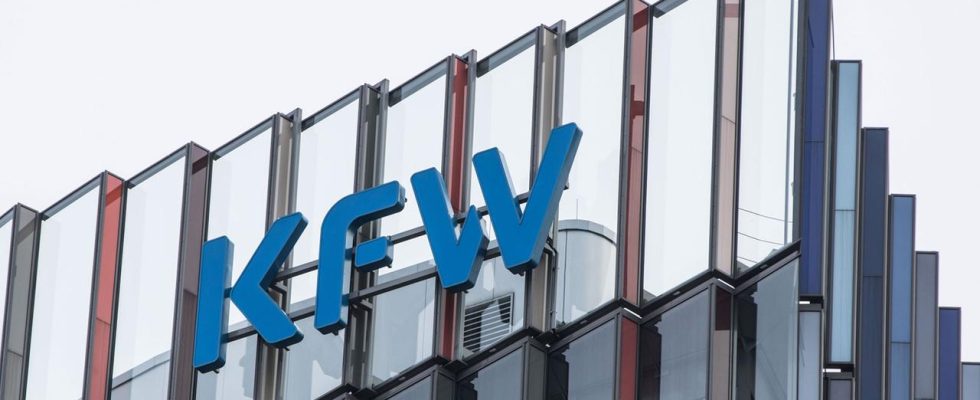Anyone who wanted to get money from KfW recently had to accept a lot: IT problems, empty funding pots, and even a funding stop in the meantime. The situation has now normalized.
The state development bank KfW in Frankfurt awarded funding worth 111.3 billion euros last year in the form of low-interest loans and grants. That was about a third less than the year before. But 2022 was an exceptional year, marked by crises, emphasized KfW boss Stefan Wintels at the bank’s press conference at the start of the year in Frankfurt. “In this respect, this is a clear but positive normalization,” said Wintels.
The development bank continued to use most of the money to support German municipalities, companies and private individuals domestically. However, they needed significantly less acute help to cushion the consequences of the corona pandemic and energy crisis. Be it the energy price brakes or Corona aid: all of this is gradually being phased out.
“No more than a PR campaign”
But there were also signs of slowdown in the regular funding programs. In the housing and construction sector, for example, KfW only awarded around half as much funding compared to the previous year. For example, this had to do with the fact that some funding pots were very small; in some cases the money was gone within just one day.
This was the case with a funding program in which owners of electric cars were supposed to be able to charge them with solar power directly from the roof. It was enough for around 30,000 applicants, including Michael Federspiel from near Hanau. Although he got the chance at the time, the consumer was disappointed: “For me it was nothing more than a PR campaign.” In addition, Federspiel had to struggle with technical problems when submitting the application.
The federal government is doubling its resources
The fact that KfW has now significantly tightened its funding criteria has caused great dissatisfaction among private individuals and companies. Stricter standards apply, especially when it comes to sustainability.
The development bank even stopped four funding programs towards the end of last year because of the federal government’s financing problems. But it has now increased its resources and roughly doubled them, says KfW boss Wintels. “We are talking about an amount of ten billion euros,” emphasizes the CEO. The development bank wants to provide more support for affordable housing and climate-friendly renovation.
Wintels pays particular attention to promoting climate-friendly heating. The starting signal for this program is the 27th. Februarysays the KfW boss. Consumers can then submit applications via KfW’s own internet portal.
“Bad signal for the construction industry”
Ulf Moslener, an expert in sustainability at the Frankfurt School of Finance, criticizes the funding confusion at KfW, particularly in a negative way for the construction industry: “When I plan a construction project, I have long planning times. If a financing option disappears in the middle, that’s a problem bad signal, not only for this project but also for other projects.”
At the same time, Moslener praises the fact that once KfW promises funding, consumers can fully rely on this promise. In this respect, the sustainability expert considers KfW to be a good development bank compared internationally. It celebrated its 75th anniversary at the end of November and is one of Germany’s largest financial institutions.

